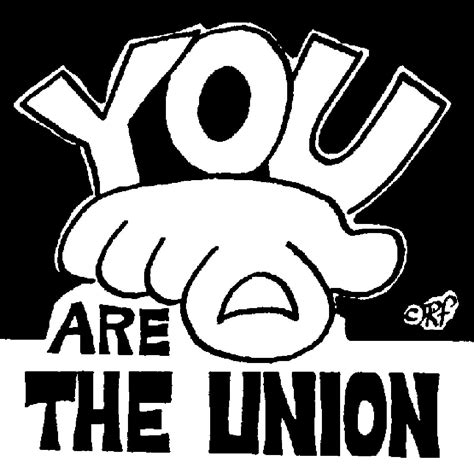I work at a non profit and we just won union recognition and are slowly moving towards first contract negotiations and I HAVE NO IDEA WHAT I’M DOING. Would love to chat with some folks about their experiences, especially if you’ve negotiated around contracts/grants/etc.
Your first contract can be harder than the union recognition fight itself. This is because it us in admin’s interest to stall:
-
Dragging their heels means they can try to let momentum die down and for your bargaining ability to be weaker due to disengagement.
-
Slower means they get to maintain the status quo longer, saving time and money.
-
If they’re particularly competent and assholes, they can eventually push to undo the union itself and will just avoid a contract until they think they’ll win decert.
I say all of this because you need a campaign just like you needed one for unionization and the exact same tactics apply:
-
You need an organizing committee/structure to ensure the work gets done and you can beat admin.
-
Keeping lists and using them. Always track who shows up to what and always contact and invite non-anti-union people first.
-
Build enthusiasm and lists by organizing meetings and actions. Both of these are also structure tests. If you get 90% turnout to a meeting and folks are on your side, you’re basically ready to strike and just need a forceful campaign to convince them it’s necessary.
-
A competent admin will force you to strike, but nobody actually wants to strike. When the time comes, your position is always, “we are trying in good faith but they’re screwing with us, it may be our only option”.
-
Do surveys / ask questions about what matters most to your membership for a contract. Track the results. Remember that pay is always important no matter what the answers say. Take the most important issues and turn them into initial demands. Your initial demsnds need to be more than you expect to get because bargaining will be about “compromise”, effectively by law. Be creative with your demands. Is childcare important? Demand a very large childcare fund based on projected cost of living in your area and frame it in equity terms. When admin balks, take note of it for when you need to organize a strike: “look what those bastards wouldn’t negotiate”.
-
Pay very close attention to bargaining time and scheduling. Demand to bargain any time, anywhere.
-
Expect to need a lawyer and to file ULP. This is mostly useful for convincing your members it’s time to strike. The state will not actually punish the employer.
-
Constantly give updates to membership. A feeling of participation is very important for your strength. Updates should tell this overall story over time: (1) it’s amazing that we won our union but the fight isn’t over! (2) take our surveys / come to meetings to share what’s important to you (3) here are our great demands in X issue that we presented to admin on [day], (4) here’s how bargaining is going (good things you achieve/TA and things about how admin is fucking around), (5) take part in X action!, (6) the bargaining committee needs your authorization to strike because admin isn’t bargaining fairly, (7) it’s time to strike, here’s all the info you need, here’s how you will survive during this time, and here’s our first action and picket.
-
If you are a small union without a good strike fund, begin making connections with other unions to build yours up. When it comes time yo strike you can leverage a strong network to bring in thousands of dollars.
You may not need all of this if you are already very powerful, i.e. have high engagement. You can stomp admin if you present your demands as articles, move ahead rapidly in the horrible bargaining process, and scare them with actions.
Basically… you just organize, same thing you’ve already been doing. Cross your Ts and dot your Is during negotiations, but otherwise treat this as the same fight. Be prepared to use direct action, particularly around when it is time to strike.
Feel free to ask questions and/or PM me.
Oh, and PS: always be professional/polite-ish during bargaining meetings. “[Not] bargaining in good faith” is a weapon to use against admin but it can also be used against you.
PS in case it’s helpful and/or enticing, I organize unions and have bargained as part of bargaining committees with successful strikes and 80-90% strike auth votes.
How do you manage ULPs in such a way that people don’t become focused on them?
I’ve seen so many organizing campaigns lose power because of some BS legal strategy. ULPs take like 2 years to go through the system so the fact that they are bound to fail won’t be clear for some time. But they kind of let people procrastinate doing challenging, scary organizing/action because that ULP is on the back burner.
It is the case especially with people who have some sort of deep down belief that that state will protect them. Even if you know in your brain that’s fake shit it is sooo tempting to relax into it. Because of how egregiously unfair the practices of the boss really are. This time even the pigs at the NLRB will see through the lies!!
Also I think union staffers like them because they have all the expertise so it kind of makes the workers reliant. The boss likes them because they know they will win.
With really good inoculation it’s possible. I’ve seen it too, once in a long while. Where ineffective tactics are pursued on purpose just to let people get it out of their systems and teach about power. Not easy to pull off and requires knowing the situation backwards and forwards.
A lot of times a ULP is just a legal justification to go on strike. That’s where they’re most useful imo
actual answer, upvote this shit, folks
guys its mao
This is such a based fucking response thank you so much

I’ve shared a ton of info in other responses, but basically I feel like my particular union is pretty weak, im convinced that my union rep is inept as hell. They are currently bargaining a first contract with another BU in my agency so hoping that can move things along for us in terms of boilerplate language but we will see. The agency hired some of the top union busting lawyers in the state, who in a news article, admitted that a tactic of theirs is to force impasse. It’s been one full year since they were recognized and they are getting down to the Financials of the contract, where management has attempted to cut benefits that exist already (sick time accrual specifically).
I just started disseminating our BU survey this week and are going to have a first kinda celebratory party/mixer in a couple of weeks, I’m really hoping we get some folks but I think everyone is so burnt out from the structural trauma going on and the everyday trauma of our jobs; my coworkers have been responding to overdoses at least 1-3 times a week for months (we work with people who are unhoused/use drugs/have mental health issues or some combo). I’m starting to get pretty upset and demoralized because the organizing committee seems to be totally checked out since we won recognition, like I’m still going to union presentations online and doing research on bargaining strategy and trying to gather info and it’s just crickets from nearly everyone else. So I dont think we have any other people who have a fully vested interest right now, but also I think are mostly just distracted by the work. That’s really what I’m struggling with right now. I want to build that momentum so we CAN win a good contract but I can’t force it and that sucks.
Of course, comrade! Happy to help any way I can.
Union staff is usually meant to fill in when full-time workers can’t (ideally you have high engagement and spread the work among workers instead). So you’re in a tough situation by having low engagement and presumably ineffectual staff. It’s not impossible, but the bad news is it’s usually a lot of work for the people still ready to fight.
How are you all doing in terms of lists and actions, and when was your last action? Members usually need three things: (1) to see activity and build solidarity with one another, (2) to see that collective actions create material movement (e.g. forced to bargain or TA an article), and (3) think that admin sucks and needs to be fought. I mention this because messaging and organizing has to strike a careful balance of not just stressing how much admin sucks in lieu of 1 and 2, otherwise people start to think, “what is the point of the union?”
Basically, I think you should consider doing a mild structure test and use that to build a more militant action to achieve your next goal (force to bargain, e.g.), and prepare to escalate to a strike given their tactics. You don’t want to go straight to a “big” action because it might look small and have the opposite effect.
For an idea: organize for an all-hands meeting to lay out what’s been happening, why it’s important to come together and act, and to get volunteers for planning the action. Emphasizing the importance is key, and ideally you could invite someone to speak about a successful contract campaign in your area (use that to get people interested in attending).
If you can confidently set a date a couple weeks out, do that and begin talking to every single person to get them to commit to going to the event. Make it easy to attend. If you can, have your most persuasive people do the talking/calling.
Attendance of the meeting is the structure test. If you get good attendance, you’re golden to do a real action. Here are some achievable options:
-
Show up en masse to management’s offices, demand to bargain, come with stories about why you need money/better working conditions, come with chants. Take pictures and videos (announce it if in a one-party state). If you have media connections, have them come to the action and write a story. If you don’t have those connections, start asking around and try to make them.
-
Do a picket in a small space. Exact same idea but it’s at a building entrance or something public.
-
Begin tabling for your campaign. Talk to the community and get signatures of people on a petition that says they support you. Get contact info so you can build a community support list. Make direct asks for your strike fund. You can get $100-$300 per hour in a busy area and a good location. Do farmer’s markets, storefronts, sports events - crowds (on a public sidewalk). Get a couple hundred or more signatures and present the numbers to your membership and to msnagement. Don’t tell anyone your exact fundraising, but say thousands if you get at least $2k (make that your target).
-
Target the funding. Whoever is the source of income to the org. If they are sympathetic, first contact them, then consider a mass action / demand session when they are present, phone banking them, getting them to agree to apply pressure, etc. If they are not sympathetic, print flyers that shame them and leave them all over a location where their funders go, put yourself on their radat. Keep going up the chain to get sympathetic pressure or a shaming campaign.
-
Obviously you can get creative based on your particular conditions. The idea is to make them pay attention and for your members to see some kind of win, even just carrying out the action.
-
Involve local politicians if any of them want union cred.
At a meta level, get local labor connections. Get other unions and socialists to show up to these things and do work with you.
Obviously the hard part is that initial piece: getting people to show up to 1 meeting. Do everything you can to make that a success. Get other unions to speak there. See if anyone can provide food in solidarity. If you have friends in a band, do a freeish concert. That kind of thing. Socialists, anarchists, etc can often help with this. And take attendance at the meeting.
All easier said than done, I know, but I hope this gives some inspiration or an angle you can latch onto.
In terms of the impasse angle, there are two common options. Tge first is rhetorical at the bargaining table (make sure someone is taking verbatim notes), i.e. finding ways to move (even small ways) and identifying when management is itself stonewalling when you have already countetred. The second is to use actions to make them move. The second is the important one and it’s why it’s all I’m focused on lol.
Solidarity and let’s keep chatting.
thanks for this again. Is it okay for me to message you about it a bit more?
Sure!
-
 good ass post
good ass post
-
First of: Thanks for doing what you do comrade!

Try to contact the fine folks at the IWW, try to contact some of the already organizing labour campaings, have a look at the - not ideal, but somewhat useful - “No Shortcuts: Organizing for Power in the New Gilded Age” or an “Organizing for Power Seminar” i.e. Jane McAlvey’s, something for the people after you that could be relevant are “bargaining unit seminars”, too.
For help with contracts you need unions who already have contracts or political lawyers.
Remember that moving forward means to somewhat include the workers in your company.
If you have a contract don’t exclude the right to strike during bargaining agreements for too long and/or include points for which you can strike even when an agreement is going on for points that weren’t part of the previous ones (this is legally contested depending on where you are).
Have a meeting with your workers about what are the most pressing needs. Companies will try to low ball you, dare to say: “We can take your suggestions and talk with our workers about them” and if they walk back on things make that transparent.
Often the company tries to enforce discretion about what is discussed in those meetings, trots often argue that you ought to say no to that and talk with the full worker base about stuff. If this works is contingent on a lot of things. Why I write that is mostly to say: While the techniques used against you are often similar, the path you and your workers take is unique. More than what would be the perfect solution is the one that is done.
Thank you
 so much for this response! I’ve been in touch with EWOC(emergency workplace organizing committee) and they got me in on a Zoom presentation with Jane! I love the tactics of big open negotiating and full transparency, that makes so much sense to me.
so much for this response! I’ve been in touch with EWOC(emergency workplace organizing committee) and they got me in on a Zoom presentation with Jane! I love the tactics of big open negotiating and full transparency, that makes so much sense to me.I haven’t reached out to other unions or IWW, even if you’re apart of a different union will they be able to provide advice/support?
I feel like our union situation is kind of weird because when I look at message board posts or websites to get more info, it seems geared to much larger unions. We unionized with a local of a large national union. The local is fairly small; there are only two union reps and they do have a lawyer that they bargain with. For our unit, we are a couple departments of a larger agency that were able to unionize apart from the rest. We have like, 30 people. So we are pretty separated from the local so far, like not really sure what other businesses are part of the local, where it seems like usually there is a lot of participation in the local itself instead of individual bargaining units? I could be wrong.
That being the case there is no previous contract to negotiate from although there is another BU in the agency thats in negotiations rn so that may provide boiler plate language. There are no shop stewards or anything like that assigned, we would just pick from our BU. And we have had no help with organizing, there is no one at the local that assists with that specifically, it’s been explicitly grassroots, workers researching, calling places, talking to coworkers etc.
I will say I’ve taken on the brunt of a lot of the organizing and I guess I just feel kinda blind like, what the hell is happening? Lol. And it sort of seems like our union rep is clueless. There are NLRB cases that I’ve read about where I’ve asked him for clarification on and he has no idea how to respond. An example was “can a business offer raises to non unionized employees and not the union members”? To which he asked if I’d heard of such a thing, and I responded with the source I mentioned. Doesn’t inspire confidence, but we went with that union because the first BU chose them and thought it was a logical choice
See if you can negotiate your contract ending at the same time as the other departments. That way, next time you can negotiate together, with the power of three units threatening strike instead of just one.
To answer your question about selective raises, that’s retaliation and a ULP. They did it to us at my last job and we had to fight it.
A lot of reps are fairly new, or are used to a particular wheelhouse, or know more about organizing than labor law, or more about labor law than organizing. That’s why it’s so important to have worker leadership.
Have you read Labor Law for the Rank and Filer and no contract, no peace?
I went to look up a video that would convey Labor Law for OP at least in part and learned that Staughton Lynd died in November. Found this but unsure as to relevance.
OP, here is a PDF of Labor Law. It really is #1 to read. At least assign it as homework to your union rep. ;)
I have not read those. I’m really bad at reading books, unfortunately though I do try. I have a huuuuuuuge list I need to go through. Luckily the only things that interest me are like, political literature and sociology
Our department just won our election two months ago where one started negotiations in February, and the other just doesn’t want to collaborate with anyone for some reason, I have no idea why. We arent even exactly sure when we will start negotiating either. So I don’t think it’s realistic, which sucks because more people is more power.
I read in this article from a union busting lawfirm that they can get away with it so long as they can prove that it wasn’t due to anti-union animus. Do you mind sharing your experience with fighting that? Also, it is true that before our first contract we cannot receive raises across the board until after negotiations?
On the management retaliation:
Unfortunately, my experience is that the rep filed a grievance and it was out of my hands. What is important imo is immediately framing it as retaliation and making the boss the bad guy before the boss can blame the union. Make it an issue to organize around or management will.
Management can give you a raise whenever they want. Ant “my hands are tied” rhetoric is the bosses trying to blame the union for their own retaliation.
On the coordinated bargaining: you don’t have to bargain at the same time this time around to line up expiration dates and bargain at the same time in 3 years.
Yeah, the narrative control had been frustrating because the first BU had been so hush hush about their negotiations and never stood up to management during all staff meetings that management took control. Every meeting started with “so union negotiations are going great!” Followed by a new rule or power taken away with a “sorry guys it’s because union!” tacked on at the end. My dept wasn’t unionized and we were afraid to push back on that then so I really want to start pushing back and getting way more vocal/transparent when we start negotiating, AND to push on this particular issue.
Our union rep has told us multiple times that since this is our first contract negotiation that the conditions of employment would be frozen until getting a ratified contract, which includes frozen wages. We don’t get normal raises, it’s been like 5 years so idk if that has something to do with it?
Idk how big your workplace is, but at mine, everyone in the Organizing Committee picked a few leaders to talk to on an ongoing basis. and that way, the most influential people in the workplace were getting their opinions on union stuff from us. That way the 4 person OC was able to reach all 60 workers with pro union messaging.
my actual union is pretty small, its like maybe 1/7th of the whole org population. I think we do tend to split and talk to different folks, but the two anti union folks in my department are vehemently opposed to changing their minds in the slightest. Heels dug in hard. I’m hoping that over time as they see updates and such they might come around but I don’t know. As for talking to other people in the agency, we are all pretty siloed; working remote and in different buildings across town. Especially since the pandemic lock downs it’s been even worse. I think some of us have tried to have conversations with the non unionized folks but it still does seem to be for naught. Idk WHY the first BU didnt start giving updates/announcements to the whole agency to try and innoculate people a bit, but i definitely plan to with our negotiations
trots
I think everyone argues this, not just newspaper boys
Trots were big on “industrializing” which is going into buisness unions to improve them. Labor Notes is actually partially the result of this movement.
So a lot of our collective knowledge about relating to larger unions is from trot experiments.
trotsa
Somewhat like Nagarjuna wrote and somewhat that I want to add. He wrote that trots were a major influence for labour literature in the US, but also their style of organizing means trying to have the whole lot of employees/workers active and talk everything through (this you can see in South American Trot influenced labour actions, i.e. Zanon/FaSinPat. However there are plenty of union who will discuss regularly in the whole group what happens but have the negotiations in smaller numbers. This includes a wide range of unions, even Trot labour actions sometimes did that, however the importance of the whole being activated was centered more by them than it once was.
You can have:
-
workers -> active workers -> active workers involved in the negotiation prep -> negotiation team
-
workers -> full assemblies (decisions) -> cadres/negotiation team(includes non cadre)
-
workers -> full assembly for major decisions -> assigned task groups -> smaller assemblies -> negotiation team
And plenty more in union action, not seldom some workers are not interested in being at every meeting, but only major assemblies (cause they have multiple jobs, are sick, have kids etc., aren’t activated). In addition labour law in the US hinders unions from doing the amount of full assemblies that quite a few organizers (including trots) would like to have.
(Would have loved to make a chart but instead you get this now).
-
@[email protected] could we please feature/pin this post (maybe without federation people being able to see it even)?
maybe without federation people being able to see it even
Honestly I don’t believe we have that feature, though pinning helps since people don’t bother to give lots of upvotes to pinned posts (?)
anyhow leaving a comment for the shitty active algo
Just curious why you wouldn’t want it available to non hexbear users? To avoid trolling or…? Also thank you for requesting to pin it!
Yes, I think trolling was not unlikely, have no worries with most federated users, but some are currently trolling and I wasn’t sure if people might give away de-anonymizing data since we didn’t have such a thread in a bit.
ohhh I see what you’re saying. I appreciate the concern for security. I’m really bad with considering that, I should rethink that.
I mean it worked out fine, so federation might’ve been a positive even. Just the habit to have specific union talk more in (one big) union only boards or that of actives. Since bosses and wreckers are afoot often.
we just won union recognition

How did the non-profit nature of your work affect your unionization push? I can see that making it much tougher because (presumably) workers see their work as intrinsically important, and genuinely bad things happen when it isn’t done.
Unionizing is a good way to keep the work going. Otherwise people get laid off, burnt out, move out of the industry etc.
This is a huuuuge reason why we were able to get many people on board. Not to mention random retaliatory firings that were completely out of process

Fuck also to answer the point about “bad things happen when it isn’t done”: people absolutely are against striking due to ot disenfranchising our clients (we work with unhoused people). We really stressed that striking would be last resort and likely wouldn’t happen. Crossing my fingers that’s the case
I’d talk to nurses if you can, they often strike and deal with the same issue. People die during nurses’ strikes.
One thing they do is give a month’s warning, so that the hospital can find scab labor, knowing that the scabs will be much more expensive to employ
That’s a really fucked up decision to have to make and I think that’s hugely why everyone is very against striking. Also because our strike fund is like 200 dollars a week per employee lol. But I saw elsewhere in this thread that other unions can help with that too which could ease the fear of my coworkers
I’m gonna be frank: organizing for a strike starts now or it doesn’t happen. Do not count on the reps to do it. If you’re going to make friends with deep pockets, it’s on you and no-one else to reach out.
If you’re going to have the “start saving” conversation, do it now.
Don’t forget about good work strikes.
Find a way to to keep doing the important part of the job while neglecting the components that serve to generate income. Stop tracking and reporting your numbers. Etc.
See that’s the hard part, my department is largely funded by our contract so if we stop reporting then we lose the grant and then lose our jobs. So I know there are things we can do, we just need to get really creative. I think we are going to lean in to garnering more community support and being publicly vocal and ramp up that way. When I’ve thought about striking, I’ve thought about picketing by providing as many of the same services that we do already outside of our buildings
Fuck also to answer the point about “bad things happen when it isn’t done”: people absolutely are against striking due to ot disenfranchising our clients (we work with unhoused people). We really stressed that striking would be last resort and likely wouldn’t happen. Crossing my fingers that’s the case
This is a weak point in your setup then, it is the same exploitation of nurses and other care workers. The culprit is the boss and company that doesn’t agree to the conditions or broke agreements. They are responsible for a strike.
Would your boss work without pay? That is what people demand when they are angry at people striking. The effects of collective bargaining are to the benefit of the group you are working with.
I don’t have any relevant experience so just thinking out loud here. Is some way to platform the voices of “clients” with pro-union sentiment to really drive though the point that the strike is ultimately for the benefit of the clients as much as for the workers and build solidarity on that axis?
Yes, creating a base of support in clients can be good. However companies in bad jurisdictions (
 ) sometimes retaliate against individuals for “breach of confidentiality”. However if you are protected or are secure it can be an asset.
) sometimes retaliate against individuals for “breach of confidentiality”. However if you are protected or are secure it can be an asset.In the case of the Charité Bettenstreik (hospital bed strike) the nurses, doctors, hygienic personal etc. were attacked for abusing the poor sick people. Yet the strike contained quite important points for their Quality of Care and Quality of Life as well as that of the workers. The workers wanted to have at least a second person at night at each ward.
There are literally PhD thesis and research thesis about that and similar hospital strikes. The point is that people in care for and you are somewhat part of it are abused due to the good they do (christian “unions” are even saying why do you want money or good conditions if you do moral stuff and are getting a benefit after death?). The right media and often bosses will side against you if there are hot industrial action or collective bargaining situations. To have prepared some support with the stake holders and “customers” of your work is good, especially for people who don’t want to hurt them, but after all if you win it will be better for the people you work with.
Talking to people about stuff that bosses will do during collective bargaining is called inoculation it is quite good and it helps to do organizing inside your work place on one hand and get experienced organizers/activists who also tell your activist allies how bosses will retaliate.
So your point is a very well made and very relevant one.
As others wrote structure tests are extremely important, see who is active and who is active when and willing to get involved. To know your true power (even if it is just distributing flyers, etc.) is quite important.
Oh you’re right on the money with that presumption. The white saviourism runs deep in the non profit industrial complex. People think that we should sacrifice livable wages in order to serve the underserved, that we dont need to better pur wprking/living conditions because we do this put of the love and passion for the work. Which yeah, we do but god damn we deserve to pay rent comfortably for taking care of the highest risk populations when no one else wants to. Our particular situation was a lil complicated though. If you wanna read my novel here goes:
We have many different depts at our agency, and before us there were 2 depts that unionized together as one bargaining unit. Then came one other dept, and then mine and our sister department that unionized together. So in all we have 3 separate bargaining units which is silly but that’s how it panned out. FYI if you’re not familiar a bargaining unit is the employees that will be represented under one contract.
In my case, organizing between the two departments was challenging to me, but seemed comparatively easy to the fights that other organizers have had to deal with. We are kind of the least appreciated depts in the agency even though we handle the toughest work. We also qualify for some of the programs that our clients do, we make such little money. A couple people in my unit have second jobs. Our agency has also undergone extremely traumatic change; it used to be based upon consensus, worker autonomy, and have a lot of radical ethics. Of course, that’s all crumbling and being “restructured” with more of a top down business model. That was a huge impetus to unionize, so it only took a couple of months to get people on board. My agency didn’t recognize our union cards, so we went to an election and won 98 percent of the vote.
Now, we didn’t try to unionize the entire rest of the agency because we knew it would be impossible to do. There are a lot of old guard who cling on to the white saviourism so hard. Along with refusing to recognize that there are many new bad actors making horrible, fucked up decisions, and refusing to believe that consensus is done for. Also there are folks benefitting from the restructure, and those, mostly Gen Xers, who are extremely antiunion and refuse to engage even though myself and others have spent months of researching tirelessly. In my union we still have 2 employees who refuse to talk about it and continue to spread misinformation across the agency like how we will have to pay $200 a month in union dues which is ridiculous.
So yeah overall I think unionizing is pretty taboo in.the non profit world. There are very few who do direct service with marginalized communities, there are more that are climate oriented and law non profits, so the idea is growing but its still got a long way to go.
If you’re more interested in the origins of non profits, unions, and the break down of social safety nets in the US I found this paper to be super fascinating.

Congratulations again, and thank you for such a thorough reply and the paper, too.
won 98 percent of the vote.
In my union we still have 2 employees who refuse to talk about it
Is your unit 100 people? If so at least you know exactly who is on side.
If it’s less than 100 people, 1 of the 2 is full of shit I guess?
Lol I’m bad at math. It was more like 93-96 percent depending on how many employees we had at the time. We’ve had so much turnover we can’t even keep track
I got a friend who’s a union organizer with a few decades of experience under his belt, so if you don’t get enough answers you need I’ll help forward them to him and help connect you if needed.
That’s so awesome, I really appreciate that offer I may hit you up. I’ve been trying to get as many resources together as I can. It’s also a unique position being a non profit because financial bargaining is so different from for profit business!
I haven’t been directly involved in a contract negotiation, but I’ve listened to my union leadership talk about the bargaining process enough to pick up on a few things:
- Check and see if you can find out what similar unions in your area have won out of their most recent contract. It will both give you a baseline of what you can reasonably expect, but also may be what management themselves will use as precedent so you’ll be prepared either way.
- Management offers often have a way of being presented in a similar manner as a slimy car salesman trying to pull the wool over your eyes with a great-sounding monthly rate that’s actually more expensive in the long term. Be prepared to run the math on their offers and counteroffers, especially when they say something like “well we can’t give you X, but we’ll give you Y which is better” as often it sounds nice but the math doesn’t pan out. This is particularly an issue with signing bonuses as they sound great to members, an extra grand in my next paycheck!, but you might run the numbers and see that the benefit you had to give up for it would have saved your members twice that over the life of the contract.
Dang the numbers part is such good advice! I’ve read a couple articles on bargaining strategy and avoiding concessions and of course they’d try to trick you with the numbers.
usually larger unions like the CWA or Teamsters have people on staff to help small unions with stuff like this, maybe reach out to them
I’m an organizer or at least an activist with the CPUSA
Hah I knew it
edit: i meant this in a good way. you’re nice
He’s very open about it lol.
From 2 random interactions I suspected they were a particular cpusa member i know elsewhere I mean
You can DM me if you want.
Where do you know me?
Are you in Tankie Bunker
Yes.
Will dm one sec i am “out of spoons” 🫨🫥🫣
yes
Thank you!
pluto is a comrade of the revolution
Oh thanks
That’s awesome! Our local doesn’t have any organizers, it’s super small with only like 1 lawyer and 2 union reps (for many businesses in the county). Is this typical? I’ve mentioned elsewhere but the entire organizing effort has been me and a few of my coworkers with no union support in terms of strategy. Im.thinking we picked the wrong one, but no turning back now.
I’m gonna be real with you, it’s better if you’re doing all the work. If your union is rep heavy, people will start to view it as something separate from themselves, you lose engagement, and you lose the aspect where people learn to self govern through struggle.
Unions with lots of paid staff also tend to be heirarchal, where a bueracratic can overrule am organizing committee.
You’re doing it the hard way, but also in the way that’s going to go best for you and your Co workers in the long run.
That makes a lot of sense. I connected with someone at another unionized non profit and they shared their experience with me. They shared that they decided on another Union that we were considering and said that they were super bureaucratic, took months to respond, And their tactic was to be very friendly with management in order to get demands met. their contract ended up looking great but it does sound like a lot of that was due to worker action. They said that they felt that it was a good thing that we have so much autonomy so I should appreciate that. I just think the rest of the organizers are so burnt out and barely engage even though I try so hard to keep us a cohesive team. Like, we work with people in severe crisis all day every day for low income wages being scared we will get fired every day so I get it but god damn I can’t do it alone and it’s making me want to quit. How do I motivate people?
start taking action
edit: with your committee
That’s the thing we have a group chat and I ask people about what they want to do, or even fill out the fucking survey that I spent like an hour or two making and hardly anyone responds. I’m trying super hard to not get bitchy, or just drop out completely. I know there are organizers who have been able to fight through it I just don’t know how much I can sustain the effort. Or, if I should have a straight talk convo of like “hey, if we want to be successful for ourselves and everyone else that trusted us with this we all need to support eachother let’s figure out how to make it happen and please don’t just ignore me lol”
A group char diffuses responsibility. Sometimes you’ve got to one-on-one your fellow OC members. Remind them of the issues, how they feel about it, remind them of the union as the path forward, and ask them to step up and do a specific task.

There are problems that come with being in a big union. You might not matter to them. Your needs can get lost. Especially if you are unusual workers. You might not end up with support. They could fuck you over just as easily.
Don’t forget that as institutions, the way big unions got to be that way was by making substantial compromises. They are full of red baiting and other things. I say take your chances with a smaller org.
Y’all are really making me feel more secure in this even though it’s still going to be a helluva fight. Hope I can keep going

Just talk to anyone who’s in a big union, especially if they are in a small shop. If you can even find one. A lot of unions wouldn’t have even consider a place like you describe because not enough due$.
Keep your spirits up for now.
I’ll just say what I said up top:
"It… depends. Recently, the big unions have been better, but it depends on which one.
There is definitely a history of anti-communism since the founding of the AFL-CIO."
@ratboy
It… depends. Recently, the big unions have been better, but it depends on which one.
There is definitely a history of anti-communism since the founding of the AFL-CIO.
Yeah, I imagine with the resurgence in unionizing recently they’ve probably wanted to capitalize on their images. But they do seem to vary greatly from local to local. Mine is pretty big but my lil branch of the local seems…very small lol. But, as others have said it sounds good that we have so much autonomy in the way we operate, it’s just going to take a fuckton of work. I don’t think anyone had any idea (myself included) how much organizing would consume your life when the ball gets rolling. We had a very, very basic understanding of how unions operate and it took a lot of parsing because it seems like a lot of info out there is for big professions like nurses unions and electricians etc. that seem to work way differently than how ours is going to operate.
That’s good. Strike new ground, but remember that it’s good to know the rules before you break them and some rules are there for a reason.
I’m admiring the way the big unions have actually ramped up their unionizing efforts, but of course, it varies from one to the other.
And yes, organizing can take up much of your life.
I’m not a union member but I want to be. Honestly, it depends on the union.
Doesn’t directly address the contract aspect or the NGO angle but you could do worse than reading Wages so low you’ll freak by Mike Pudd’nhead for general left union ideas. Although I only read the first book of several in the series so maybe it comes in later.
Holy shit, dude tried to organize for a whole four years? Maybe I should be more grateful that it was so quick for me. Luckily our agency is propped up by social currency so if they really tried to fight union efforts the community would set them on fire lol.
set them on fire
Don’t be afraid to leverage that.
The great thing about being frontline workers with strong community relationship is that sometimes people who feel strongly in solidarity take actions which would be “in bad faith” or even illegal if the workers themselves did same action. You can’t be held responsible for what independent people do.
A comrade was organizing at a nonprofit when they were fired. Big union did not back them up. Bricks started being thrown through the windows of the nonprofit by discontented service users. Comrade went on to another job but none of the other organizers were fired and now org has a contract.
Fuck that’s so wild! We already get bricks thrown through our windows, but man there would probably be dozens more. They can’t keep fixing the windows forever! Lol. Really though I think we are going to steer into becoming more public since the first BU is getting into Financials. It sounds like for next negotiation meeting they’ve invited a local solidarity organization to have a lunch outside the meeting place as a visible sign of support. And I think we’ee going to ramp up gradually. I’d already been thinking about creating a Twitter and Instagram, contacting union represented colleagues at the county, going to the local weekly paper and so on. Just gotta keep up the energy for it all, that’s the challenge
Well I don’t know how much pull youse have, but do you think your employer would notice you the bricks stopped for a little while? Maybe at a very strategic moment. it might even be more spooky for them.
They won’t let me. I suggested we open carry to meetings and the cowards didn’t like it.
A comrade was employed as an organizer with a union. This employer exclusively hired from a recent immigrant community in an attempt to break the unions previously established in the white/settler community. When it came time to start taking actions, the workers began listing the managers that most especially got on their nerves and debating which ones were the highest priority. Comrade had a hard time following the discussion for a little bit and eventually asked for clarification. Was told: “Oh we know how it goes. We knock off some of theirs; they get a few of ours. We are not sure which ones we will go after.” The agenda item was Union Hit List. Back home, unions were serious business and everyone had engaged in organizing with this understanding. Suddenly for the first time, comrade was in the position of not being the militant fringe of the labor movement. But as is inevitable for any union staffer, trying to reel the workers back in line. But it was not without ambivalence.
I have often thought what it would mean for labor here in America if one union negotiation just popped off for real. I can’t imagine honestly
West Virginia Coal Wars redux
Haha! Both parties should be able to open carry. In case of an impasse you just draw pistols at dawn to decide the victor.
sorry im late just discovering this website exists. There is a lot of good organizing advice in this thread already, so I will stick to the contract. I’ll try and keep this as general as possible since it will obviously vary state to state/country to country because of employment law.
If you are in a large union there are staffers who should be assigned to help you, you will need advice from a professional negotiator. If you are a small union, reach out to a big one and ask for assistance. Having a professional negotiator at the table is powerful as the negotiator can challenge your employer in ways that the bargaining unit may feel intimidated to since the power relationship is unbalanced.
Ask your union if they can train people in contract interpretation. Additionally ask about how to go about getting union stewards; union stewards are your coworkers who can act as a representative of the union. It is extremely important you start training those people up now; the employer will be resistant to change their practices to align with a unionized environment and you will need to enforce on the floor. Even before you get your contract I believe employment standards will protect the right to representation in some capacity; anything you start enforcing before you get the contract will show the employer you mean business. Stewards should be someone who is not afraid to stand up to management, someone your coworkers respect, and someone who is good at their job. They should be fair and objective, and not afraid to have difficult conversations. Usually things like this that are dictated internally by the union should be covered in your constitution if you have one.
I think someone else mentioned this, yes monetary gains are really important and most people will care about those the most, however there are other areas members will not even consider that are equally if not more important. 3 of those areas are mgmt rights, the grievance procedure, and discipline/dismissal.
Management rights is an article that will be in every collective agreement that basically states anything not covered in the CA falls within management’s operational rights; i.e. if it’s not in the CA, the employer can do what it wants. If you are a social worker and your employer demands you clean toilets all day instead of doing social work, so long as they pay you the agreed to wage in the CA, that’s within their rights unless you have certain classifications/duties covered in the CA. This is important because the scope is very expansive and the employer likes to use this language as an excuse anytime they may break the contract. You will never get this out of the contract, but it’s important to understand how it works and why it’s there.
The grievance procedure is a procedure to get redress from the employer in case the employer breaks the contract. Outside of organizing this is one of the only avenues that rank and file members can seek redress from the employer. It’s sort of like fake court; you explain why the employer broke the contract, the employer explains why they didn’t, and the appointed hearing officer will decide who is right. The grievance procedure usually involves several steps, each step escalating in the authority of the hearing officer to grant the redress. Sometimes the last step will be binding arbitration.
Discipline/dismissal will dictate how the employer goes about that. It can have timelines on how long an event occurred that an employer can go back and discipline you for, how long the employer needs to give you notice before investigating you, if they need to provide you with allegations about the incident, etc. This is where people live and die in the bargaining unit - anything the employer can use to reduce the bargaining unit needs to be heavily scrutinized.
You should coach your bargaining committee to be completely non-reactive at the table - no one has any reaction good or bad to any proposal from the employer in front of the employer. You do not want to reveal any tactics or any indication on how the bargaining unit thinks.
I think that’s a good start, dm me if you have questions. People negotiate as professionals so this process is understandably intimidating, but your employer probably knows less than you about unionized environments based on my experience lol so don’t let them push you around. No I will not be taking any questions from anarchists at this time.
Thank you for this response! I appreciate your thoughtfulness. Sorry that it’s taken me a while to get back to you; I think I got kinda overwhelmed with the good feedback/autistic burnout so I have been avoiding pretty much everything lol.
Our union is super tiny, but we will have one or two union reps and the union lawyer there at the table to negotiate luckily. I cannot imagine going it without any representation. I think where our local is lacking is with folks who assist with organizing campaigns, but it sounds like it may be better that we have more control over tactics and such which I’m starting to appreciate.
In terms of management rights, those are permissive to bargain, no? So can management refuse to bargain those and therefore are not required? Or is it the type of thing where management will inevitably make mention of it therefore it will be up to negotiation in that case? That definitely sounds important to focus on that I hadn’t considered before.
For the grievance procedure, is that something that you suggest we just try to make explicit in the contract, or is there a way to negotiate it? My thoughts were that there was already steps of escalation like you mentioned but I’m a fan of literally challenging/tweaking everything we can (including what seems like innocuous language!). Also those are good ideas for the discipline/dismissal piece. My agency has been SOOOO fucking shady with retaliatory firings, lawsuits against them, admin leave extending for months and months without a clear explanation of what the issues are…So that is a top concern from pretty much everyone in the BU. It’s pretty wild what they would get away with; like literally pulling people out of the middle of their shift and putting them on leave. Fucked thing is that we HAVE performance plan/escalation steps in our P&P that have been completely cast aside.
I just had an informal party with a decent chunk of our BU; answered questions, had someone from a local union campaign talk about their experiences and just hung out. I think a lot more folks are more confident and/or stoked to participate so I’m feeling pretty good about it and ready to fight the bastards!









